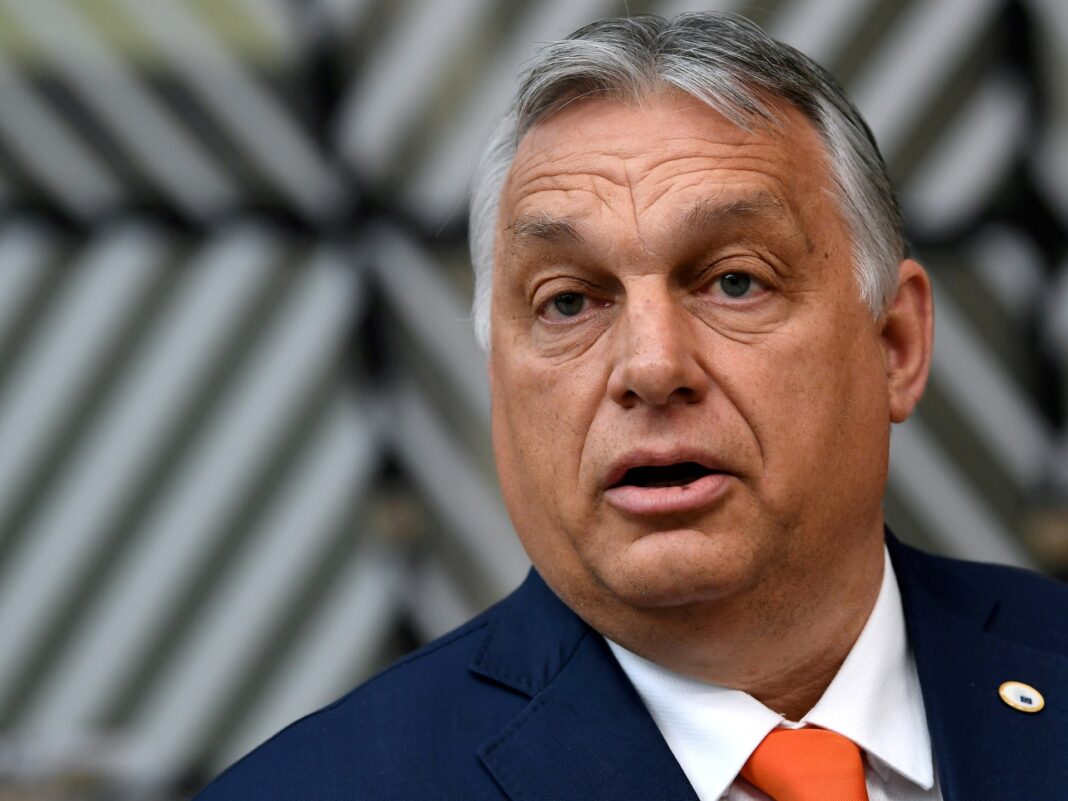Rights activists and some legal scholars condemn the law, arguing that it effectively criminalises LGBTQ+ expression.
Hungary’s parliament has approved a constitutional amendment allowing the government to ban all public events organised by LGBTQ+ groups.
Passed on Monday, the amendment formalises a law introduced earlier this year that bans such gatherings, including Budapest’s annual Pride March.
It’s seen by critics as another authoritarian lurch by Hungarian Prime Minister Viktor Orban’s right-wing government.
Human rights activists and some legal scholars have condemned the law, arguing that it effectively criminalises LGBTQ+ expression in public spaces.
Orban’s government has consistently argued that the legislation defends traditional family values and protects children.
The amendment passed with 140 votes in favour and 21 against, backed exclusively by MPs from Orban’s ruling Fidesz-KDNP coalition. It required a two-thirds majority to become law.
Ahead of the legislative session, opposition lawmakers and demonstrators attempted to prevent access to parliament’s parking area. Protesters, who had bound themselves with zip ties, were forcibly removed by police.
The revised constitutional text asserts that a child’s right to moral, physical, and spiritual development takes precedence over all rights except the right to life. Critics say this phrasing is aimed at limiting freedom of assembly.
The new amendment enshrines into the constitution “child protection” legislation, which prohibits the “depiction or promotion” of homosexuality to minors.
It also states that the constitution recognises two sexes, male and female, adding to an earlier amendment that prohibits same-sex adoption by insisting that a mother is a woman and a father is a man.
By giving this law constitutional status, the government strengthens its legal footing and potentially shields it from future legal challenges, including those from European Union institutions.
Budapest Pride, which has drawn thousands in recent years, now faces uncertainty under the new framework. Organisers have not yet commented on whether the 2025 event will proceed.


